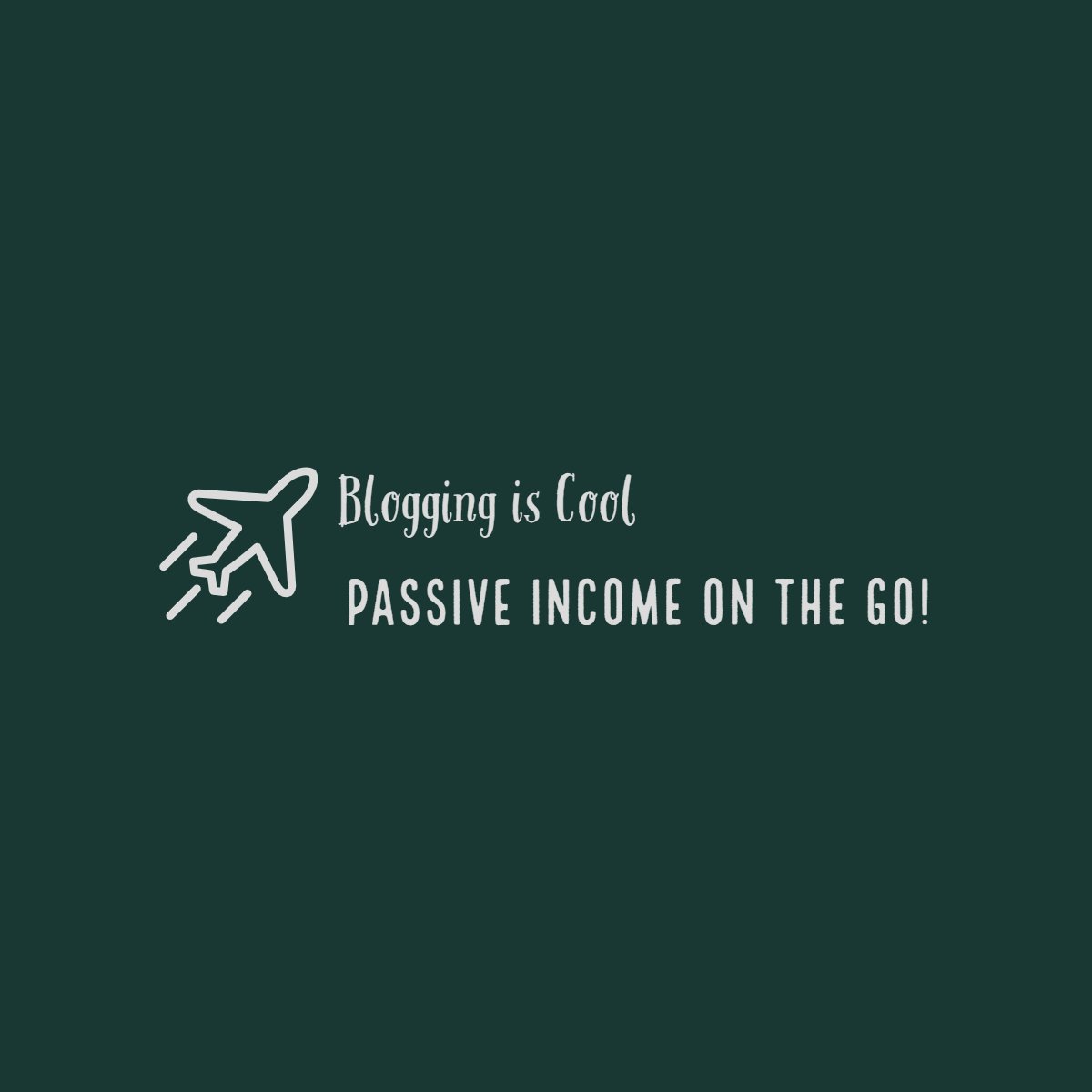Why Every Blogger Should Have Multiple Websites
Protecting Your Income
One of the things that worries many bloggers is instant vanishing of income that has been established through rigorous work over many years.
It is a genuine worry.
When Google makes updates to its algorithm, a lot of bloggers lose their traffic.
Therefore, as a blogger, it’s important to diversify your online presence and not rely solely on one website.
While managing multiple websites may seem overwhelming at first, there are several reasons why every blogger should consider having at least five websites.
Benefits of Having Multiple Websites
In this blog post, we will explore the benefits of having multiple websites and why it’s important not to put all your eggs in one basket.
1. Increased Visibility and Reach
Having multiple websites allows you to target different niches and audiences.
By creating websites that cater to specific topics or interests, you can increase your visibility and reach a wider audience. This can lead to more traffic, higher engagement, and ultimately, more opportunities for monetization.
2. Diversification of Income
Relying on a single website for income can be risky. If that website experiences a sudden drop in traffic or faces technical issues, your income could be severely affected.
By having multiple websites, you can diversify your income streams. This means that even if one website is not performing well, you still have other websites generating revenue.
3. Experimentation and Learning Opportunities
Having multiple websites allows you to experiment with different strategies, designs, and monetization methods.
You can test different SEO techniques, content formats, and marketing strategies without risking your entire online presence. This experimentation can lead to valuable insights and help you optimize your websites for better performance.
4. Protection from Algorithm Changes
Search engine algorithms are constantly evolving, and what works today may not work tomorrow.
By having multiple websites, you reduce the risk of being heavily impacted by algorithm changes. If one website experiences a drop in search engine rankings, you still have other websites that can continue to drive traffic and generate income.
5. Portfolio Building and Branding Opportunities
Having multiple websites allows you to showcase your skills and expertise in different areas.
This can be particularly beneficial if you offer services as a blogger or freelancer. By demonstrating your knowledge and experience across multiple websites, you can build a strong portfolio and establish yourself as an authority in your niche.
6. Flexibility and Adaptability
Having multiple websites gives you the flexibility to adapt to changing trends and market demands.
If one niche becomes oversaturated or loses its popularity, you can shift your focus to another website that is performing better. This adaptability ensures that you are not solely dependent on one niche or topic.
7. Networking and Collaboration Opportunities
Having multiple websites can open up networking and collaboration opportunities.
You can reach out to other bloggers or website owners in different niches and explore potential partnerships. By collaborating with others, you can tap into their audience and expand your reach even further.
Bloggers who Own and Manage Multiple Blogs
Here are a few examples of bloggers who own and manage multiple blogs:
1. Darren Rowse
Darren Rowse is the founder of ProBlogger, a widely popular blog that offers tips and advice on blogging.
He also owns and manages several other blogs, including Digital Photography School, which provides photography tutorials and tips, and TwiTip, a blog focused on Twitter tips and strategies.
2. Pat Flynn
Pat Flynn is known for his blog Smart Passive Income, where he shares insights into passive income strategies and online business.
In addition to Smart Passive Income, Pat also owns and manages several other blogs, including Green Exam Academy, which offers resources for passing the LEED exam, and FoodTruckr, a blog dedicated to food truck entrepreneurs.
3. Lindsay and Bjork Ostrom
Lindsay and Bjork Ostrom are the creators of Pinch of Yum, a popular food blog featuring delicious recipes and photography.
In addition to Pinch of Yum, they also own and manage Food Blogger Pro, a membership site offering resources and training for food bloggers, as well as Nutrifox, a nutrition label generator for food bloggers and recipe creators.
4. Neil Patel
Neil Patel is a renowned digital marketer and entrepreneur who owns and manages several blogs in addition to his main website.
Some of his other blogs include Quick Sprout, which offers marketing and SEO advice, and Crazy Egg, a blog focused on website optimization and conversion rate optimization.
5. Michelle Schroeder-Gardner
Michelle Schroeder-Gardner is the founder of Making Sense of Cents, a personal finance blog where she shares tips on saving money, paying off debt, and earning income online.
In addition to Making Sense of Cents, Michelle also owns and manages several other blogs, including FITnancials, which focuses on fitness and finance, and Diversified Finances, a blog about personal finance and lifestyle.
6. Sarah Titus
Sarah Titus is a blogger and entrepreneur who owns and manages several blogs covering various topics such as budgeting, home organization, and blogging tips.
Some of her blogs include Saving Money Never Goes Out of Style, which focuses on frugal living and budgeting tips, and Million Dollar Shop, which offers resources and advice for starting an online business.
7. Kristie Hill
Kristie Hill is a blogger and web designer who owns and manages multiple blogs in addition to providing design services.
Her blogs cover topics such as blogging tips, WordPress tutorials, and online business strategies.
Some of her blogs include Blog Ambitions, where she shares blogging tips and resources, and Pretty Darn Cute Design, which offers WordPress themes and design services.
8. Heather Saffer
Heather Saffer is a food blogger and entrepreneur who owns and manages several blogs related to food and cooking.
In addition to her main food blog, Heather also runs blogs focused on specific niches within the food industry, such as baking, gluten-free cooking, and dessert recipes.
9. Rosemarie Groner
Rosemarie Groner is a blogger and personal finance expert who owns and manages several blogs covering topics such as budgeting, saving money, and frugal living.
Some of her blogs include The Busy Budgeter, which offers tips and advice on managing finances and simplifying life, and Organize Yourself Skinny, which provides resources for meal planning and healthy living.
10. Emma Chapman and Elsie Larson
Emma Chapman and Elsie Larson are the founders of A Beautiful Mess, a lifestyle blog featuring DIY projects, recipes, and home decor inspiration.
In addition to A Beautiful Mess, they also own and manage several other blogs, including A Color Story, a photography app and blog, and Oui Fresh, a beauty and skincare blog.
These bloggers demonstrate how it’s possible to successfully manage multiple blogs across different niches while building a strong online presence and audience.
Conclusion
Having multiple blogs can offer several benefits to bloggers, including diversification of content and audience reach, increased opportunities for monetization and revenue generation, and the ability to explore different interests and niches.
By owning and managing several blogs, bloggers can cater to a wider range of interests and preferences among their audience, thus increasing engagement and loyalty.
Additionally, multiple blogs provide flexibility and resilience in the face of changes in the market or shifts in audience preferences, allowing bloggers to adapt and evolve their content strategy over time.
Moreover, having several blogs enables bloggers to experiment with various monetization strategies, such as affiliate marketing, sponsored content, and digital products, potentially leading to higher income streams and financial stability.
Overall, owning multiple blogs can be a strategic approach for bloggers to expand their online presence, maximize their earning potential, and establish themselves as authorities in multiple niches.
Every blogger should consider having at least five websites to diversify their online presence and not put all their eggs in one basket.
By having multiple websites, you can increase your visibility, diversify your income, experiment and learn, protect yourself from algorithm changes, build a strong portfolio, adapt to market demands, and explore networking opportunities.
While managing multiple websites requires effort and time, the benefits far outweigh the challenges.


